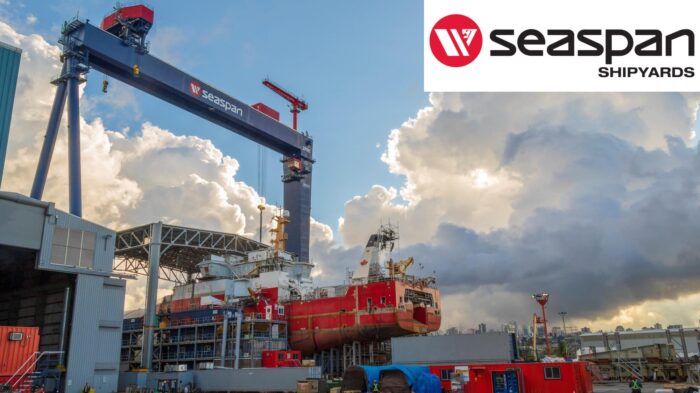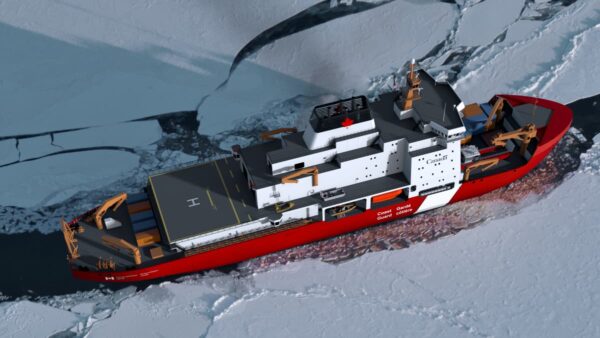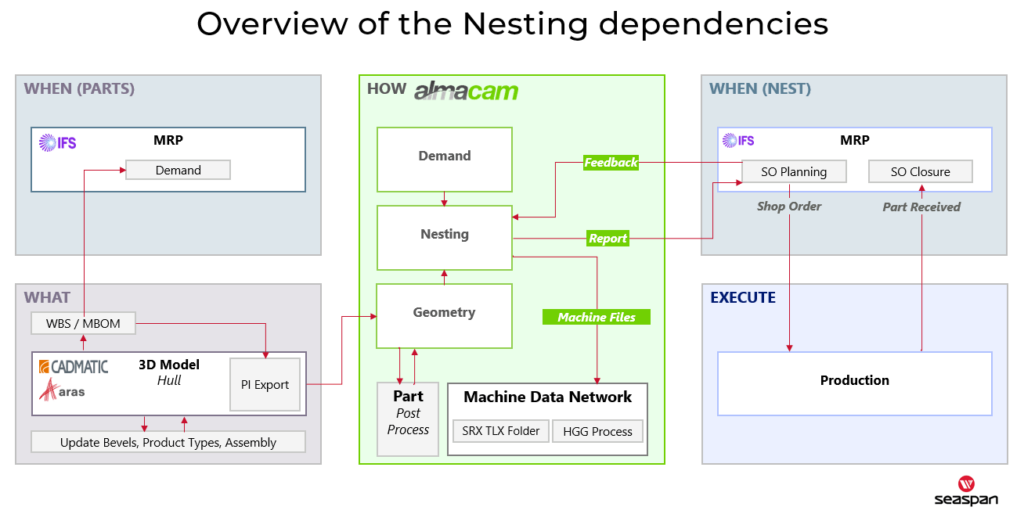
Seaspan, one of Canada’s leading shipyards, embarked on creating a vessel for extreme environments, requiring CAD and CAM advanced technical solutions. By adopting Almacam as a comprehensive nesting tool, the shipyard enhanced the precision of its metal cutting preparations and empowered its teams to work more efficiently, overcoming the project’s significant challenges. Rakesh Rahmatullah, Lead of the Steel Fabrication Nesting Team at Seaspan, shares with us their story.
Interview of Rakesh Rahmatullah
Steel Fabrication Nesting Team Lead
Seaspan – Vancouver Shipyards

Seaspan, a Canadian major shipyard to build a new vessel for extreme conditions
Seaspan is a world leading independent maritime asset owner and operator. Seaspan is currently one of the two major shipyards operating in Canada; it’s a new construction shipyard. Seaspan is building vessels for the all government projects, including vessels for the Canadian Coast Guard and the Canadian Navy.
One of the innovative projects at Seaspan is the development of the Canada’s first polar icebreaker in more than six decades-second of its kind, worldwide-. Once completed, the new polar icebreaker is expected to not only break up ice but participate in various missions, including Arctic science missions, search and rescue, security, navigation, transportation and emergency response.

A digital rendering of Seaspan’s in-development polar icebreaker.
Finding a full-featured CAM solution to answer demanding technical needs
To be able to carry out innovative projects and new classes of vessels, including the construction of this icebreaker with complex bevels being plasma cut on thick steel, Seaspan has decided to modernize all the software of the workflow MRP, CAD and CAM software. Previous software no longer met the technical requirements of Seaspan’s increasingly complex projects. The challenge was also to increase consistency of cutting bevels and complex shapes.
If we hadn't changed our software, we wouldn't have been able to develop new projects with so technical specificities. For example, for the bevel management, we would have had a significant amount of manual work to nest every bevelled part. Furthermore, we would have run the risk of having a misalignment of all the nesting documents, like the reports and the nesting files.
Almacam selected as the best all-in-one nesting solution
To select their CAM software, Seaspan has benchmarked a couple of vendors. With these 4 key strengths, Almacam quickly emerged as the software that best met the technical expectations, and Alma as the company best able to support Seaspan’s teams.
1. The powerful and comprehensive feature set of Almacam
We were searching a tool that is able to handle both plate nesting and profile nesting in the same interface. This was important for us because we had a few vendors where they were able to offer us one type of nesting, either for plates, either for the profiles but not for both. Alma's software definitely checked the big box there.
Given that Almacam is a more advanced generation of software, it was easily able to impress us with the numbers we got.
2. Ability to automate transactions previously done by hand (bridging, bevel tooling, batch-nesting, etc…)
Overall, it is fair to say with Almacam we are enabled to deliver a nest package not only a whole lot faster than before but also the output itself being smarter, i.e. more meaningful to downstream stakeholders in the business.
3. Integration with the new CAD and the new MRP system
Changing CAM software for Cadmactic was a paradigm shift in the way the design teams were doing modeling and the way they get parts for nesting. For an effective nesting, Seaspan had to find a CAM software that can be integrated with Cadmatic and the new MSP.
We have Cadmatic, but when we also wanted integration with our MRP system which is completely different. We needed a nesting software that could independently work with different platforms. This was a major bottleneck for some other vendors because they were offering us only their own suite of software.
4. Strong experience of Alma in shipbuilding
The solid customer service of Alma in shipbuilding projects reassured Seaspan on the Alma’s ability to provide high support and on the quality of the specific developments to be carried out.
We wanted to get a vendor who had shipyard experience.
Clear results : better cut preparation quality and more productive teams
Seaspan has made clear gains since the introduction of Almacam, both technically and in terms of the company’s overall operations.
Improved bevel management
Almacam has helped improve bevel management thanks to powerful capabilities as accurate import of bevel data from Cadmatic, intelligent nesting algorithms that account for beveled edges, and precise machine programming.
One really big improvement, is more precision in cutting bevels. That improves cutting quality and avoid waste of material.
Optimized nesting of sheet metal parts
I've always desperately wanted something like that to be available, and that is being able to nest multiple material types at the same time in one shot. So by the time you get all the parts for the block, all their parts can promptly be nested in their respective materials separately, nice and clean. So I think that was a great advantage to the team. This was definitely a feature that made the application stand out compared to other vendors we were exploring.

Streamlined nesting process and information flow between the MRP (Material Requirement Planning) tool and the CAM system
A fine grained integration has been developed between Almacam and Seaspan‘s MRP system to enable sharing all the information about the parts (quantity, date, parts needed). This was very unthinkable before.

Automated tasks that reduce manual efforts
Seaspan is now definitely more productive. Almacam can do all of that in the background, which frees up your time to do other things.